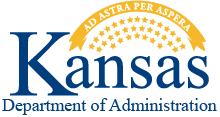Bulletin 02-02 - Probationary Periods
1.0 - SUBJECT: Probationary Periods
2.0 - EFFECTIVE DATE: December 6, 2002
3.0 - DISTRIBUTION: Agency Human Resource Managers
4.0 - FROM: Bobbi J. Mariani, Director DATE: December 6, 2002
5.0 - PURPOSE: To clarify the difference between original probationary status and the probationary period for a position to which a probationary employee is promoted.
6.0 - BACKGROUND:
All new hires and rehires are on probationary status for a six-month period. The agency may extend probationary status for up to six additional months provided action is taken to extend the probationary period and notice is given to the employee prior to the end of the original six-month probationary period. Following the successful completion of the original probationary period, an employee obtains permanent status as an employee with the State of Kansas. The length of time spent on original probationary status continues to be in effect when an employee is promoted.
All employees who are promoted are subject to a probationary period of three to six months for the new position (unless specific training or certification requirements cannot be completed within six months). This probationary period is separate and distinct from an employee’s original probationary status.
7.0 - PROCEDURES:
If an employee is promoted during their original probationary period, the promotion does not automatically change the employee’s probationary status.
Example: An employee begins work with the State of Kansas on January 10 and will serve a six-month probationary period. The employee is promoted May 1 with a six-month probationary period for the new position. The employee obtains permanent status as a state employee on July 10 even though probation for the position doesn’t end until November 1.
Action must be taken and notice given to the employee if the original probationary status is to be changed to coincide with the probationary period for the new position. In accordance with K.A.R. 1-7-6(a), a probationary performance review must be conducted prior to the end of the probationary status period either granting the employee permanent status or extending the original probationary period.
In the above example, the supervisor of the position the employee was promoted to must give the employee a performance review prior to July 10 to recommend permanent status or extend probationary status. In this case, it would be conceivable to extend probation until November 1 to coincide with the probationary period for the new position or to grant the employee permanent status as a state employee while the employee continues to serve the probationary period for the new position.
Once an employee has obtained permanent status as a state employee, the employee is granted the rights and privileges of the Civil Service Act. If an employee with permanent status is unsuccessful during the probationary period for the position, K.S.A. 75-2944(b) governs what can happen.
Using the above example, the employee achieved permanent status on July 10. On September 10, the supervisor determines that the employee is not successful in the new position. In this case, the employee has achieved permanent status as a state employee so the requirements of K.S.A. 75-2944(b) would apply.
If the promoted employee remains in original probationary status, then the employee can be terminated upon receipt of a performance review that indicates unsatisfactory performance. Employees terminated for poor performance during their original probationary status must be given an unsatisfactory performance review.
Using the same example, the supervisor extended the employee’s probationary status as a state employee until November 1. On September 10th, the supervisor can give the employee an unsatisfactory performance review and terminate the employee since the employee would still be in probationary status as a state employee.
In all cases, the agency must provide clear notice to the employee regarding the effect of a promotion on the employee’s probationary status as a state employee.
8.0 - REFERENCES: K.A.R. 1-7-3, 1-7-4, 1-7-6 and K.S.A. 75-2944.
9.0 - CONTACT PERSON: Lois Ryan at lois.ryan@ks.gov or (785) 296-4274.


